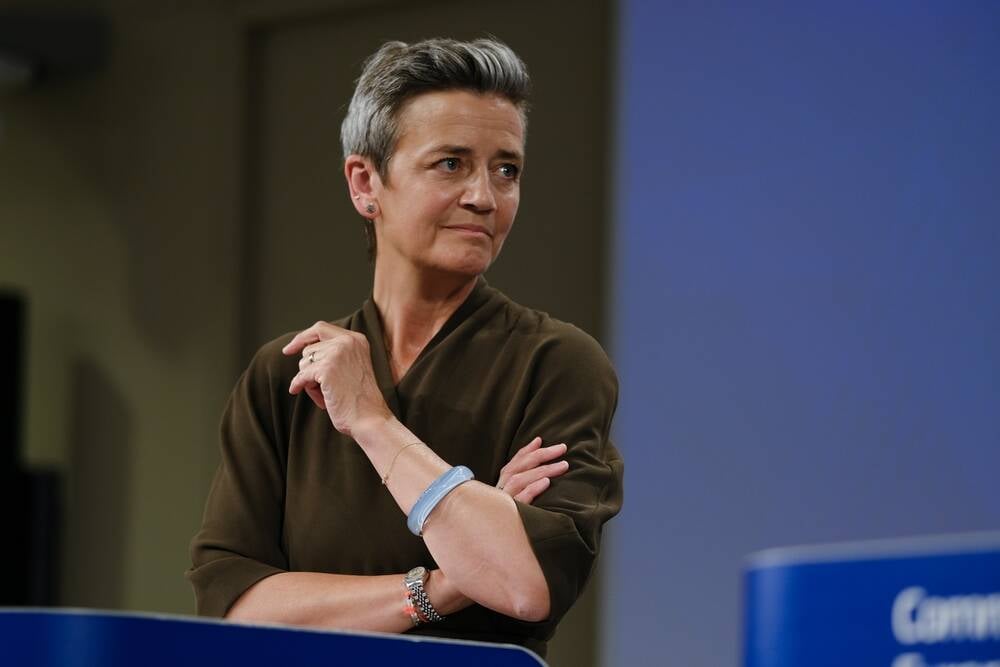Despite a European Commission review in April clearing Microsoft of trying to exert control over OpenAI by the backdoor, the duo’s $13 billion partnership hasn’t escaped regulatory scrutiny just yet.
“We are closing this chapter, but the story is not over,” Margrethe Vestager, executive vice president of the commission, said in a speech on Friday in which she emphasized that Microsoft, OpenAI, and other key players in the ML space would remain under EU regulators’ watchful gaze.
The commission was earlier concerned that, rather than perform traditional mergers that need to go through rounds of regulatory review and monopoly abuse checks, tech giants such as Microsoft were avoiding that scrutiny by instead entering tight partnerships that were near enough acquisitions in all but name.
These models need vast amounts of data, computing power, cloud infrastructure, and talent, which only a few players have
“In terms of merger control, we are seeing a trend of big companies setting up partnerships with small AI developers,” Vestager said, adding these partnerships aren’t necessarily insidious and are, in fact, considered to be healthy for competition when done correctly.
“We have to make sure that partnerships like this do not become a disguise for one partner getting a controlling influence over the other,” she continued.
Now, having conceded that Microsoft was not evading European merger rules with its heavy support for OpenAI, the commission has moved on to its next concern: The effect of the deal on the pair’s rivals.
After requesting information from several tech titans – including Microsoft, Google, Facebook, and TikTok – in March, Vestager said the commission will continue its inquiries into Microsoft and OpenAI’s collaboration, this time to “understand whether certain exclusivity clauses could have a negative effect on competitors.”
This has included “sending a follow-up request for information on the agreement between Microsoft and OpenAI,” she said. The commission, it appears, wants to make sure the Windows giant doesn’t have an unfair monopoly on the ChatGPT lab’s work even if it lacks significant corporate control.
Speaking more generally, Vestager observed: “A major risk we see is big tech players leveraging their market power across different markets within their ecosystem. Concentration is especially high at the top of the value chain, where large foundation models are trained to be used in various applications.
“These models need vast amounts of data, computing power, cloud infrastructure, and talent, which only a few players have.
“This could lead to practices like tying and bundling by dominant firms, blocking AI competitors from accessing essential resources, and preventing customers from switching.”
Under the terms of Microsoft’s deal with OpenAI, the GPT-4-creator was promised access to large quantities of cash and Azure computing power in exchange for integrating its models into Redmond’s various products, ranging from Bing Search to Windows, Office, and GitHub.
And despite Microsoft’s massive bet on Sam Altman and his crew, the IT giant has – at least on the surface – surprisingly little control over the super-lab’s operations. In fact, it was only after Altman’s brief ousting and subsequent return as CEO last fall that Microsoft was able to put an observer on OpenAI’s board.
While Microsoft’s dominance and OpenAI’s high-ranking position in AI development have put them in the spotlight, they are far from the only pairing to catch regulators’ attention.
The commission is also sending requests to Google for more information on its plans to integrate the Gemini Nano AI model into certain Samsung devices, Vestager said.
And where anticompetitive behavior is found, she emphasized the commission’s ability to use Europe’s Digital Markets Act to regulate AI, despite the fact it’s not listed as a core platform service. “AI is covered where it is embedded in designated core platform services, such as search engines, operating systems, and social network services,” she said.
It’s worth noting it’s not just EU regulators whose attention Microsoft and OpenAI’s not-merger has captured. Earlier this month, we learned the US Federal Trade Commission was reportedly considering a probe into whether the massive deal gives the duo an unfair advantage.
Meanwhile, the US Department of Justice is said to be readying an investigation into whether Nvidia, which controls an estimated 80 percent of the AI infrastructure market, had become a monopoly. ®
Bootnote
Apple’s decision to postpone launching its AI features in Europe was a “stunning declaration” of its anticompetitive nature, Vestager also said on Thursday.

